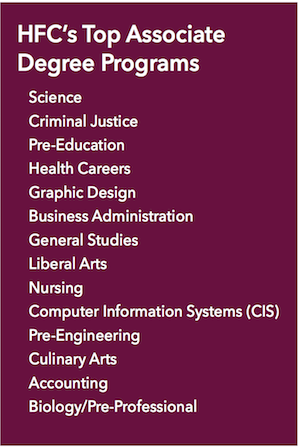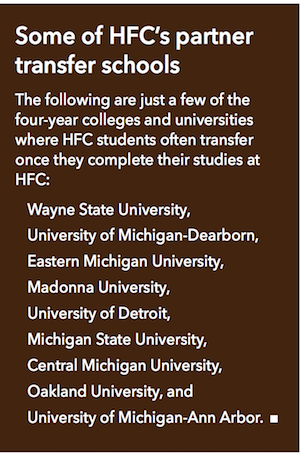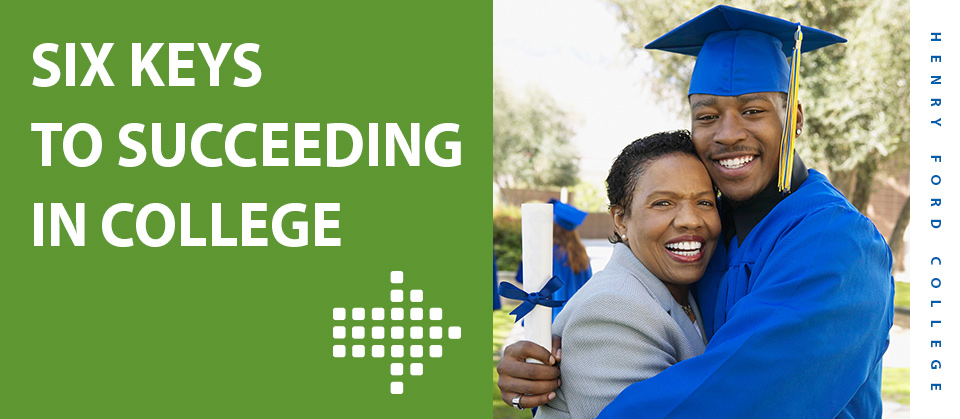Want to know a secret? More than 47 percent of the college students in the United States now attend two-year colleges. These schools are becoming increasingly popular for students with all kinds of goals.
Okay, so that’s not really such a big secret. But you might be surprised to learn just how much two-year colleges have to offer prospective students. Everybody knows that community or technical colleges are less expensive than four-year schools. But there is much more to the two-year college story. Here’s a look at some of the “best-kept secrets” of America’s dynamic two-year schools.
Top-Notch Instructors
Some people assume that because it costs less to attend a community or technical college, students must settle for a second-rate educational experience. But it is a mistake to equate low cost with inferior teaching.
People who are concerned about skyrocketing costs at four-year institutions may mistakenly view the lower cost of going to their local community college as the main benefit. What they often find out when they enroll is the secret of quality. Community colleges have top-notch instructors who devote most of their time to teaching and to helping students achieve their goals.
In fact, most community and technical college faculty members have excellent credentials. Those who teach in transfer programs typically have at least a master’s degree and many hold doctorates. Many also have real-life experiences in the fields in which they teach, special certifications or both. An important factor is that those who teach in two-year colleges tend to regard themselves as professional teachers rather than researchers. They thrive on direct contact with students and focus their energies on the classroom experience.
Small Classes
Two-year colleges come in all sizes, from small rural schools to large urban colleges that dwarf some universities. But a common denominator in virtually all of them is a commitment to limiting class size.
Small classes in community colleges mean a lower instructor-to-student ratio. The smaller classes help students get more involved and student involvement is shown to be an important factor in overall success.
Special Programs
Community colleges are a great place to start if earning a four-year or graduate degree is the goal.
For instance, many two-year schools have worked out arrangements with universities so that students may pursue bachelor’s degrees after they earn an associate degree without leaving the community or technical college campus.
Social Advantages
There’s more to college than classrooms and textbooks. Community and technical college students can participate in athletics, student government, student organizations, theatre activities, music performance groups and other activities. HFC has more than 35 student clubs and organizations. By getting involved in clubs and other activities and living on campus, students get real-life, hands-on college experience.
Flexibility
Perhaps the greatest strength of two-year colleges is their flexibility. Want to work during the day and attend school at night? That shouldn’t be a problem. Most two-year schools offer extensive evening programs and some have weekend offerings in addition to online courses.
Interested in transferring? Students can complete a year or two of studies at a fraction of the cost of a four-year school and then transfer to a university.
HFC Transfer Resources Help Save Time and Money
 To help save money for tuition and earn a high-quality education, many students begin their education at HFC and then transfer to a four-year college or university. In fact, HFC works closely with public and private four-year institutions in Michigan to develop course equivalencies, transfer guides and articulation agreements to make the transfer process easier.
To help save money for tuition and earn a high-quality education, many students begin their education at HFC and then transfer to a four-year college or university. In fact, HFC works closely with public and private four-year institutions in Michigan to develop course equivalencies, transfer guides and articulation agreements to make the transfer process easier.
HFC has established exceptional University Center partnerships with Madonna University, Siena Heights University (SHU) and Eastern Michigan University (EMU). Students can take classes at HFC, then transfer to one of universities where they can take classes on the HFC campus. These partnerships help students save money, work toward their undergraduate degree and remain close to home. Other benefits include the availability of evening, weekend and hybrid classes; personalized advising; and transfer-friendly policies and guarantees. To learn more, visit https://www.hfcc.edu/university-center.
Additionally, in 2015, HFC signed a Reverse Transfer Agreement (RTA) with Walsh College in Troy. This RTA allows students the opportunity to transfer coursework from Walsh to HFC to potentially earn an associate degree. This agreement applies to HFC students who have completed a minimum of 20 credit hours at HFC but have transferred to Walsh before earning an associate degree.
If a student takes a class at HFC and that class does not transfer, HFC will refund that class 100 percent.
 The MACRAO Transfer Agreement and Michigan Transfer Agreement (MTA) also help facilitate the transfer of credits to meet many (and in some cases all) of the General Education Requirements at participating Michigan four-year colleges and universities. The MTA took effect in the fall 2014 semester. Students who started before the fall 2014 semester are able to complete the existing MACRAO Agreement until the end of summer 2019.
The MACRAO Transfer Agreement and Michigan Transfer Agreement (MTA) also help facilitate the transfer of credits to meet many (and in some cases all) of the General Education Requirements at participating Michigan four-year colleges and universities. The MTA took effect in the fall 2014 semester. Students who started before the fall 2014 semester are able to complete the existing MACRAO Agreement until the end of summer 2019.
Students can also utilize the Michigan Transfer Network (MTN), which is a centralized, web-based system that allows students to search course equivalencies among all Michigan colleges and universities.
To learn more, please visit https://hfcc.edu/transfer.
– Kurt Anthony Krug
 1 Start early. Perhaps the best way to prepare for success in college is to get started as early as possible with processes such as applying for financial aid, completing admission applications and taking a placement test.
1 Start early. Perhaps the best way to prepare for success in college is to get started as early as possible with processes such as applying for financial aid, completing admission applications and taking a placement test.
2 Plan ahead. To avoid stress and manage your workload, plan ahead for all of your assignments. Get a course syllabus (or outline) for each course and read it carefully. There you will find the instructor’s expectations as well as a schedule for assignments.
3 Connect with other students. Find a buddy in each class; join a student club or organization and get involved.
4 Choose classes carefully. Nothing can cause more problems than getting overwhelmed by a class for which you are not prepared. Pay close attention to course descriptions and consult an advisor or instructor before enrolling each term.
5 Seek help. If you need advice with academic or personal matters, talk with the support professionals who are available to help students. If you have trouble with a class, go to the instructor. Also, check out tutoring services or computerized study aids.
6 Do the work. It may sound simple, but an essential factor in college success is completing all assignments. Unfortunately, too many students try to get by without reading everything that has been assigned or otherwise scrimping on coursework. If you do everything that is asked of you, the odds of success are in your favor.
Attending a two-year school and then transferring to a four-year school saves money. It also increases the chance of getting into a “reach” school since transferring is typically less competitive than applying as a high school senior among the masses.
Another plus is that two-year colleges provide solid preparation for succeeding at the next level. With smaller classes taught by highly qualified professors, they provide students the chance to meet general education requirements while strengthening skills in key areas such as writing and math. A real advantage is that students can proceed at their own pace. While students typically complete two years of study before transferring to a four-year college, that’s not the only option. Some students move on after only a year. Others earn associate degrees, enter the workforce and then pursue bachelor’s degrees on a part-time basis. Since many employers will pay for their employees to take college classes, the part-time option can be especially cost-effective.
Two-year colleges really are a tremendous value that people sometimes overlook because they don’t know about these “secrets.” Whatever the goal, a college like HFC is a great place to learn more and do more.

